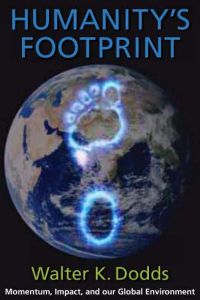
Humanity’s Footprint
Momentum, Impact, and Our Global Environment
Recommendation
Most of the natural systems that humans rely on for survival are in jeopardy. The earth’s resources are irrefutably finite. Science predicts dire consequences if humankind fails to initiate strategies to stem population growth and rampant consumption. Author Walter K. Dodds presents a worldwide perspective on global warming, including fascinating statistics about human resource use and its implications for the future. He examines the most potentially threatening effects of human behavior. To shed some new light, he offers solution-oriented insights from game theory, which studies the conditions under which people who are naturally pursuing their own self-interests will cooperate for the greater good. getAbstract recommends this guide to global warming issues.
Summary
About the Author
Walter K. Dodds is a biologist specializing in water ecosystems and a professor at Kansas State University. He heads the Kansas Ecological Forecasting Initiative. He wrote Freshwater Ecology: Concepts and Environmental Applications.








Comment on this summary